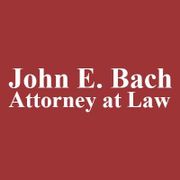
Trusts — arrangements that allow you to legally protect and earmark assets for future use — are excellent ways to provide for your family now or at a future date. Educational trusts are particularly useful if you have a child or other loved one who may eventually need to pay for college or graduate school. The primer below explains what you should know about these worthy investments.
A Basic Guide to Educational Trusts
How They Work
Educational trusts function much like standard trusts. With the help of an attorney, you’ll write a trust document. On this form, you’ll name your beneficiaries, appoint a trustee — a third party who holds the assets on the beneficiaries’ behalf — to control the funds, and list certain terms of use.
How to Create One
 There are multiple factors to weigh when creating an educational trust.
There are multiple factors to weigh when creating an educational trust.
- Timing: You may create a living trust that goes into effect while you’re alive, or a testamentary trust to be used only after your death. Your age, the ages of your beneficiaries, and tax concerns may affect your choice.
- Trustees: If the account is used while you’re still alive, you can name yourself the trustee. However, you should also choose a successor to take your place in the event of your untimely passing. If you’re taking the testamentary route, you’ll need to pick a trustee and an alternate. Choose a reliable relative or other person who’s familiar with your wishes for the role.
- Beneficiaries: If you have more than one, you’ll need to define whether each will receive a fixed amount or a percentage. You may also want to set up separate trusts per recipient.
- Conditions: Try to anticipate contingencies. Will you still fund your beneficiary if you think they’re going to medical school, but they later decide to pursue a fine art degree? What if they decide not to go to college at all? Make plans for any leftover funds.
How They Differ From 529 Plans
529 plans are savings vehicles designed for educational purposes. 529 plans aren’t taxed as they grow or upon disbursement, provided they’re put to eligible educational uses. Trusts are more flexible in terms of timing and fund usage. They can be especially helpful for grandparents of means who want to support their grandchildren while also limiting their estate and Generation Skipping Transfer (GST) tax burdens. However, trusts are more likely to negatively impact financial aid eligibility. An attorney can help you choose which is best for your circumstances.
Making provisions for the future is a complex endeavor. For all your trust and estate planning needs, turn to John E. Bach Attorney at Law in Goshen, NY. For over 30 years, this lawyer has provided the knowledge and attention to detail clients need to protect their families and assets. Contact (845) 294-7941 to schedule a consultation, or learn more about his practice online.
About the Business
(5 reviews)
Have a question? Ask the experts!
Send your question

